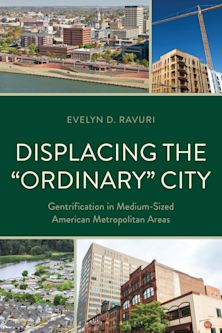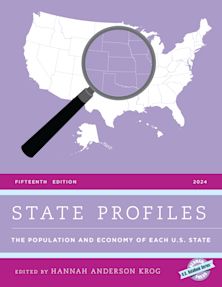- Home
- ACADEMIC
- Geography
- Human Geography
- Divided Subjects, Invisible Borders
You must sign in to add this item to your wishlist. Please sign in or create an account
Description
What do Germany’s memorials, films, artworks, memory debates and national commemorations tell us about the lives of Germans today? How did the Wall in the Head come to replace the Wall that fell in 1989?
The old identities of East and West, which all but dissolved in joyous embraces as the Berlin Wall fell, emerged once more after formal re-unification a year later in 1990. 2015 marks the twenty-fifth anniversary of that German re-unification. Yet Germany remains divided; a mutual distrust lingers, and national history remains contentious.
The material, social, cultural and psychic effects of re-unification on the lives of eastern and western Germans since 1989 all demand again asking fundamental questions about history, social change and ideology. Divided Subjects, Invisible Borders puts affective life at the centre of these questions, both in the role affect played in mobilizing East Germans to overthrow their regime and as a sign of disappointment after formal reunification. Using contemporary Germany as a lens the book explores broader debates about borders, memory and subjectivity.
Table of Contents
Product details
| Published | Sep 21 2015 |
|---|---|
| Format | Ebook (PDF) |
| Edition | 1st |
| Extent | 326 |
| ISBN | 9798216222408 |
| Imprint | Rowman & Littlefield Publishers |
| Illustrations | 8 BW Photos, 1 Table |
| Series | Place, Memory, Affect |
| Publisher | Bloomsbury Publishing |
Reviews
-
At a moment in which the outlook for the European project seems bleak and representative democracy is in crisis, [...] Divided Subjects, Invisible Borders has much to offer specialists interested in how dissatisfied and disaggregated citizens negotiate the identities they are forced to share, at least superficially, with one another.
German History
-
The book maps theories of fantasy and collective identity onto the post-transition period and the experience of eastern Germans, adding new dimensions to a burgeoning literature on post-unification identity in Germany. To this end, Gook disentangles complicated theoretical scholarship – from Freud to Zizek – in order to show how the imaginary and the symbolic help to anchor both collective (national) identities and a sense of (the individual) self.
Journal of Contemporary Central and Eastern Europe
-
Divided Subjects, Invisible Borders provides a detailed introduction to the complexity of memory and space in Germany (and particularly Berlin) following re-unification, and substantially expands on a number of key and emerging considerations relevant to scholars interested in recent German history. In particular, the combination of media, landscape, history, and politics brings new insight to a field that frequently addresses the problems of re-unified Germany from a limited disciplinary perspective
Society & Space
-
Gook, an investigator at the ARC Center of Excellence for the History of Emotions at the University of Melbourne, takes a thoroughly interdisciplinary approach, examining East German culture via politics, popular culture, film, and ethnography. . . .Overall, this book provides a fresh analytical approach to the persistent puzzle of divided identities.
Europe Now
-
This book, situated at the intersections of psychosocial and cultural studies, political science and anthropology, contributes original and important ideas to the discussion of how psychoanalytic theories might be applied to questions of remembrance, commemoration and nostalgia and helps to elucidate how a liberal capitalist nation-state manages crises and disruptions.
Silke Arnold-de Simine, Senior Lecturer in Film, Media and Cultural Studies, Birkbeck, University of London
-
Ben Gook shows in his theoretically sophisticated and quietly passionate study that the complacent tale of successful German unification not only forgets the erasure of eastern Germans' experiences and expectations when the wall came down and the future seemed open but also reproduces the inner-German division it sought to heal. Divided Subjects, Invisible Borders is an auspicious debut.
A. Dirk Moses, Professor of Global and Colonial History, European University Institute, Florence



































